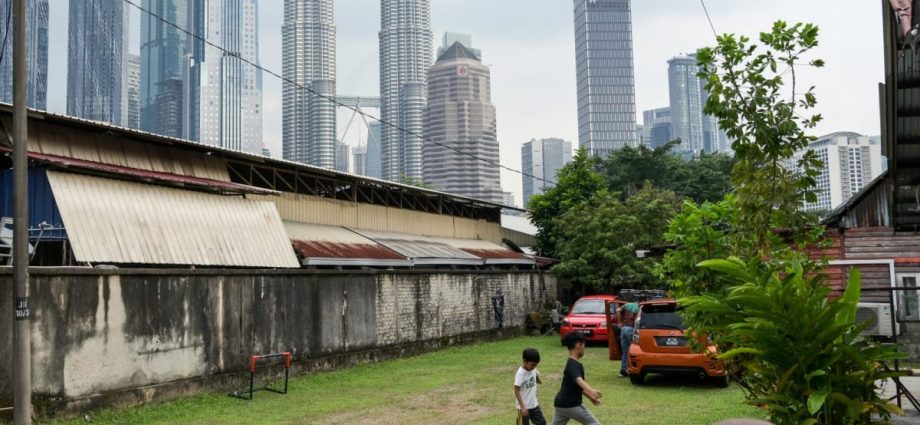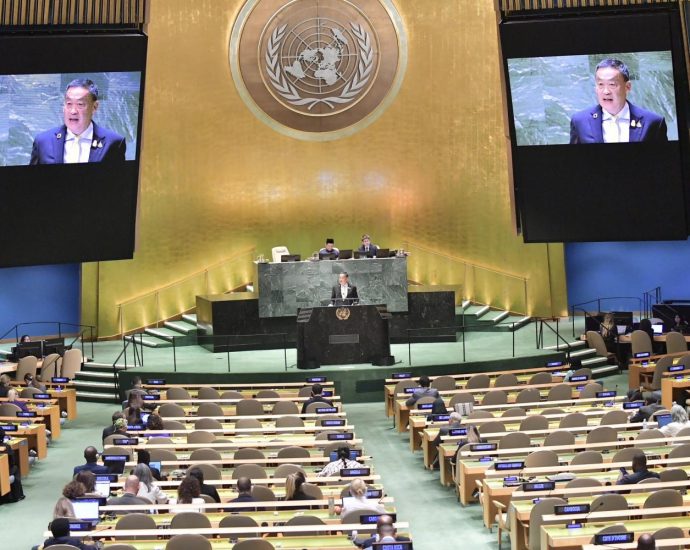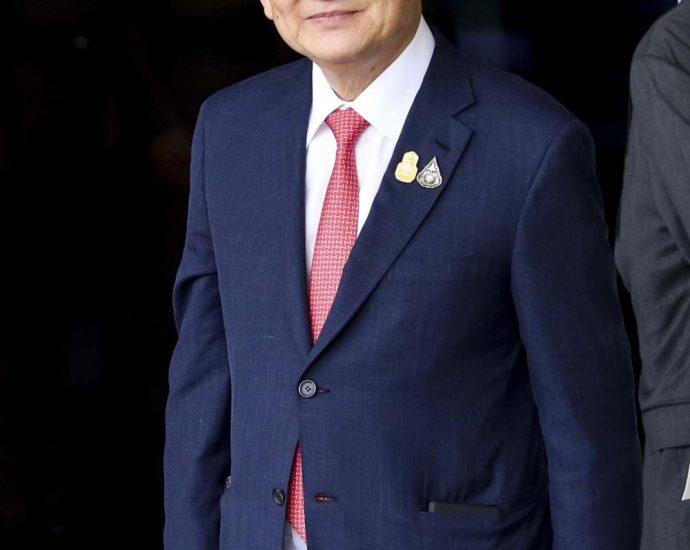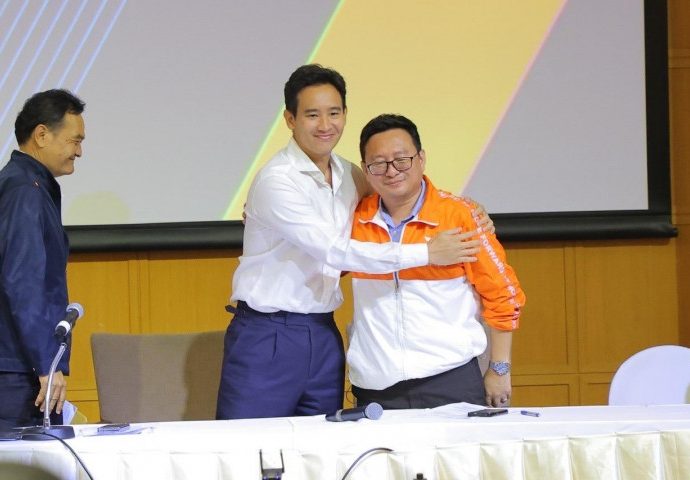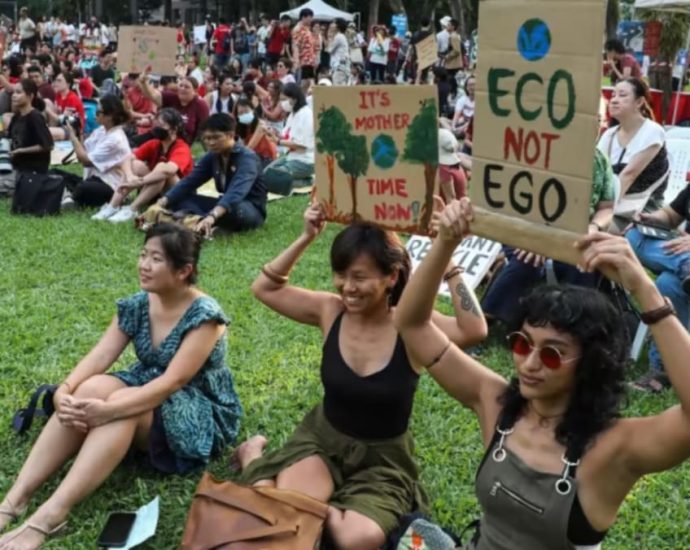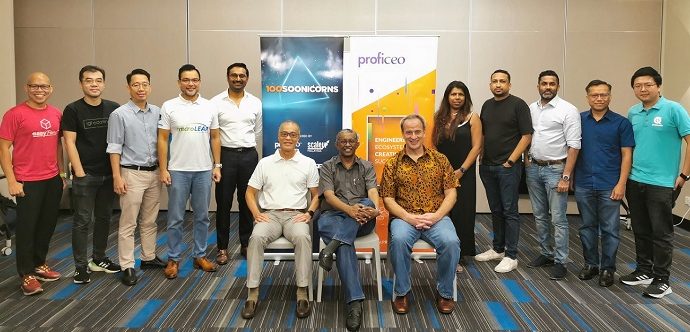70% of sex crime victims in Malaysia are children, as its police pledge to fight ‘frightening’ trend
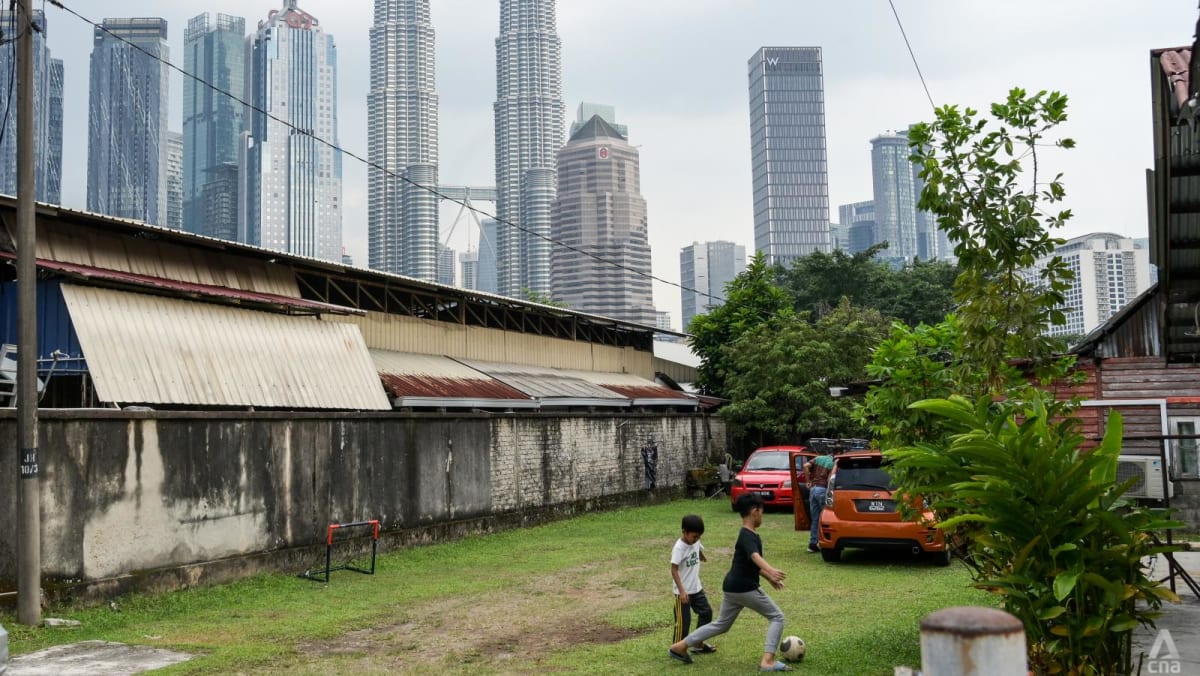
Other perpetrators who are known to victims are usually in some sort of a romantic relationship. This is when a girl is asked to perform indecent acts on camera, and might not even know that they are becoming a victim of child pornography.
“The latest trend I see is that boys like to record these acts as a kind of keepsake,” ACP Kamsiah said.
Perpetrators who are not known to victims usually start off by using a fake account or identity to get in touch with their victims on private messaging apps.
“The perpetrators usually befriend the victims and convince them to be lovers. Then they start to engage in explicit conversations, until the victim is influenced to share things like nude pictures,” ACP Kamsiah said.
“This is when the perpetrator takes the opportunity to record or download these images, which will then be used to threaten and trap the victim into eventually having sex.”
In some cases, the videos and images are shared with friends on various platforms, or if paedophilic elements are involved, in private groups or on the dark web.
ACP Kamsiah said these child sexual abuse material cases often escalate to physical sexual abuse, pointing out that they usually start with the sharing of explicit images, and culminate in having sex with a minor.
“They start with sharing nude images, then they meet and engage in sexual intercourse. So when a report is made, the police will classify it as a case of rape,” she said.
CHALLENGES: STIGMA, MANPOWER SHORTAGE
Dr Rahman believes it is important that child survivors of sexual abuse be given not only physical shelter, but also sustained emotional support. He said some privately-run shelters lack intervention and counselling resources.
“They don’t even have counsellors, and they are banking on volunteers to chip in,” he said, adding that he helps monitor 30 private shelter homes registered in Selangor.
“If let’s say the kids do not receive any proper and continuous intervention, throughout the years (the trauma) will be triggered again.”
Dr Nayagam, who has four decades of experience handling child abuse cases, said suspected cases are first sent to hospitals to get a physical check-up. If the doctors confirm the abuse, the cases could be reported to authorities.
During case discussions with other agencies, he said he tries as far as possible not to place children in shelters, citing the “stigma” that comes with it.
Children need to be emotionally stable in the company of a family member, like a grandparent or cousin, he said.
Child survivors are placed in a shelter as a last resort. They usually stay for about six months, and move out when a caregiver can take them in, or when they are nearing 18 and ready to live and work independently.
Nevertheless, Dr Nayagam feels there is a lack of manpower in the child social service ecosystem, in terms of social workers, counsellors and psychologists.
“But we are moving in the right direction,” he said.
PM talks up Thai credentials at UN meet
Srettha tells world that country is ready to do business again

Prime Minister Srettha Thavisin has hailed his visit to the 78th session of the United Nations General Assembly (UNGA78) as a success, saying it marks a first step in telling the world that Thailand is now welcoming foreign investors again.
He was speaking to reporters after delivering a statement at the UNGA78 general debate at the UN Headquarters in New York.
Asked to assess his first participation in the international event as prime minister, Mr Srettha, who also serves as finance minister, said “It is a positive sign and a good starting point. It is the first step in telling the world that Thailand is open [to investment].
“We are ready for both inbound and outbound investment. There will be not only investors from abroad, but several Thai companies are also ready to invest in foreign countries.”
He also thanked the Foreign Affairs Ministry and the Board of Investment for their efforts to draw foreign investors into Thailand.
Mr Srettha said he attached importance to Thailand’s bid to apply for membership of the United Nations Human Rights Council. Thailand is Asean’s candidate for the 2025-2027 term.
“We have neighbouring countries surrounding us, such as Malaysia, Laos and Cambodia. The most sensitive issue is the Myanmar crisis. We have to take care of people fleeing the fighting as Thailand shares a more than 1,000-kilometre border with Myanmar,” he said.
Mr Srettha also shared his thoughts on a range of issues during the event.
They include issues related to food security, global warming, changing climate, global peace, and the sufficiency economy philosophy conceived by His Majesty King Bhumibol Adulyadej The Great, he said.
Commenting on security matters, Mr Srettha said achieving a lasting peace is a delicate issue. Thailand believes in peace and sustainable prosperity and it will try to avoid interfering in other countries’ internal affairs.
“Some countries are known to have fallen out with others. Our country is small, but we are proud of our independence.
“It is incumbent upon this government and its leader to maintain the country’s independence and stay neutral. We believe in peace and sustainable prosperity,” the prime minister said.
Mr Srettha also posted on X, formerly Twitter, that: “Wrapped up my mission at #UNGA78 at the General Debate, where I shared the global vision with leaders from over 190 countries.
“Now is the time to pursue our common agenda for peace, prosperity, and sustainability for all. Thailand invites every nation to be more ambitious in our common goals, accelerate our actions and work harder together to address the challenges we all face. Only together can we build a better future for generations to come,” he wrote.
Government spokesman Chai Wacharonke gave a summary of remarks delivered by Mr Srettha at the UNGA78 general debate.
The PM highlighted Thailand’s new chapter in its democracy, and the government’s commitment to strengthening democratic institutions and values in the country, and uplift the well-being of Thais.
The PM said Thailand will play a constructive role in partnership with the international community, and forge closer ties and greater prosperity through commerce, investment, and trade agreements, leading to the betterment of all.
The country also intends to work closely with all nations to tackle multiple global challenges head-on.
On sustainable peace, Thailand welcomes the secretary-general’s efforts to establish a New Agenda for Peace, which the country believes will spearhead efforts to revive multilateralism and enhance the UN’s role as a platform for achieving global peace.
The country reaffirms commitment to maintaining peace and inclusivity.
According to the prime minister, sustainable peace and development is undeniably linked with respect for human rights, human dignity, and freedoms.
To this end, the government is working to advance equality and justice, especially for the most vulnerable and the marginalised through strengthening the rule of law and increasing transparency within the government.
The government will ensure that the law is fair and applied equally to all.
Asean to fight scams, fake news

PUBLISHED : 24 Sep 2023 at 04:00
VIETNAM: Thailand will join hands with neighbouring countries to combat call centre scams and fake news.
Puangpet Chunlaiad, the minister attached to the Prime Minister’s Office, said yesterday that she discussed with the Cambodian Minister of Information, Neth Pheaktra, efforts to combat call centre scams.
She also met the Vietnamese Minister of Information and Communications, Nguyen Manh Hung, to understand its anti-fake news initiatives. The talks took place during the 16th Asean Ministers Responsible for Information (AMRI) meeting and the 7th AMRI Plus Three meeting in Danang, Vietnam, on Friday and yesterday.
Many Thais have been lured by call centre scam gangs to work in Cambodia or fallen victim to their promises and lost their life savings, incurred huge debts and even ended their lives. Thailand urgently needs to work with the government of Cambodia to solve the issue, she said.
More cooperation between both countries will be implemented, such as raising awareness around the tricks of scam gangs and strengthening security along the border to prevent illegal crossings. Ms Puangpetch said the discussion on combatting fake news with Vietnam’s Minister of Information and Communications was fruitful.
She praised Vietnam for setting up a committee to fight fake news on social media. She also urged more information sharing between the two countries as well as from Asean members.
Combatting fake news is one of the main items before the AMRI meeting, she said, adding Thailand also supports the Guidelines on Management of Government Information in Combatting Fake News and Disinformation in the Media, as endorsed in the 16th AMRI meeting. Ms Puangpetch and Mr Nguyen both agreed that journalistic ethics are key to ensuring news reliability.
Swiss man dies after ‘jumping’ from airport car park

PUBLISHED : 24 Sep 2023 at 04:00
PHUKET: A 53-year-old Swiss man died after jumping from a car park at Phuket international Airport on Friday night.
Police rushed to the airport after it was reported that a foreign man suffered injuries after jumping from a parking building about 7.30pm on Friday, Pol Col Salan Santisatsanakul, chief of Sakhu station, said yesterday.
The officers found traces of blood on the ground where the body was found. The injured tourist was earlier sent to Thalang Hospital.
The man, whose name was withheld, was pronounced dead upon arrival at the hospital, said Pol Col Salan.
Police believed the tourist deliberately jumped from the car park building. A security guard at the airport said he saw the man surveying the area on Friday. Authorities are investigating the cause.
Last month, a 50-year-old Australian man fell to his death from the car parking building at the airport.
Govt eyes bigger world stage role

Maintaining a balanced foreign policy amid intense rivalry between the United States and China is one of challenges the government will have to grapple with.
After assuming the premiership, Prime Minister Srettha Thavisin took his first foreign trip to New York where he is now attending the 78th Session of the United Nations General Assembly (UNGA78) in New York and related meetings which end today.
There, he has held talks with national leaders, heads of international organisations, and key people at both bilateral and multilateral levels.
He also met executives of global leading companies, such as Tesla CEO Elon Musk, to discuss possible investment opportunities in Thailand. Others include those from Microsoft, BlackRock, Google, Goldman Sachs, and Estee Lauder.
After the trip to the US, Mr Srettha expects to visit China late next month.
The visits to the two countries give an idea of how this government will pursue its foreign policy to achieve a balance in its relations with China and the US.
When he laid down policy for officials at the Foreign Ministry, Foreign Affairs Minister Parnpree Bahiddha-Nukara also impressed upon them the importance of the economy, security and technology.
He plans to invite Thai ambassadors in foreign countries to attend a meeting in Thailand and expressed confidence that under this government’s stewardship, Thailand will reclaim a more prominent role on the global stage.
Striking a balance
Panitan Wattanayagorn, a security and international relations expert, told the Bangkok Post that the government’s policy statement regarding foreign affairs which it unveiled in parliament on Sept 11 was not much different from those of previous governments.
“The foreign policies are similar. They include fostering cordial relations with neighbouring countries, and boosting Thailand’s role on the international stage for the sake of national interests and security.
“These are general principles, though some details are emphasised differently. Security is always interconnected with foreign relations.
“But the new government has placed much emphasis on management of internal affairs, such as military conscription, and procurement,” Mr Panitan said.
It remains to be seen how the new government will push for negotiations to end the crisis in Myanmar, he said, adding that Thailand should maintain neutrality as the previous government had already held talks with all sides involved in the conflict in Myanmar.
“This government should set out a clear plan on how to discuss the crisis with other Asean members.
“If we can do so, Thailand will rise to prominence. But I understand that we may not be ready yet,” Mr Panitan said.
He added that it is also important for Thailand to rebalance towards the US as the American economy is improving.
It is also necessary to address its human trafficking issues to improve Thailand’s rating in the US’s Trafficking In Persons Report, Mr Panitan said.
Thailand remains on Tier 2 in the 2023 Trafficking in Persons (TIP) Report issued by the US on June 15.
The country has been listed on this tier for two consecutive years.
He said Thai-US military ties and cooperation should also be strengthened in terms of military drills and equipment procurement.
Regarding relations with China, Pheu Thai has no clear details on how to pursue a foreign policy towards that country, Mr Panitan said.
“There is no clarity or details despite Pheu Thai having nine years [after the 2014 coup] to prepare for a return to power,” he said.
Asked about Mr Srettha’s planned trip to China which is seen as an attempt to balance Thailand’s relations with China and the US, Mr Panitan said there may be a misconception about striking a balance in relations with super powers.
“Thailand is too small a country to strike a balance between them. They can tear us into pieces if we try to adopt such a policy. We are not the UK, Germany or Japan.
“What we can do is to distance ourselves from China and the US on certain issues and get close to them on some matters such as tourism,” he said.
He also said the Brics grouping of emerging economies — Brazil, Russia, India, China and South Africa — are a force to be reckoned with, with the nations representing 42% of the global population.
Thailand can gain many benefits from trade with the group, though it remains to be seen what stance the new government will adopt on this, Mr Panitan said.
He said the previous government seemed to adopt what is called “too quiet diplomacy”, without enough publicity campaigns in pursuit of its foreign policy.
“The previous government [installed by the military coup] seemed to keep silent,” he said.
However, Mr Panitan said he is still wondering why the new government has yet to come up with vigorous policies to take a leading role in Asean.
“We have to wait and see [if such polices will materialise] after the PM’s trip in New York.
“If our proposals to end the Myanmar crisis and the Ukraine war are acceptable, Thailand will steal the show on the world stage.
“This government’s foreign policy seems to offer hope, but it has yet to crystallise into anything substantial,” Mr Panitan said.
Maintaining neutrality
Anekchai Rueangrattanakorn, a lecturer at Chulalongkorn University’s faculty of political science, told the Bangkok Post the government seeks to increase national income through proactive economic diplomacy with existing partners such as the European Union, and the Middle East and new markets such as India, Africa and South America.
Its foreign policy also aims to speed up free-trade agreement negotiations to boost growth, he said.
When Mr Srettha spelled out the government’s policy statement in parliament early this month, he highlighted Thailand’s neutrality between the two superpowers, China and the United States, and Asean’s centrality and neutrality, Mr Anekchai said.
He said Thailand’s international image had been hurt by the 2014 coup. Furthermore, the previous government’s foreign policy also tended to be pro-China.
“It is necessary to rebalance and recalibrate Thailand’s role. After the coup, the international community questioned Thailand’s stance on democracy,” he said.
“Mr Srettha’s speech at the UNGA78 should make the international community understand Thailand’s neutrality,” he added. However, China will remain as a key player in the economy, he said.
He said that when dealing with superpowers, Thailand should put itself in a strategic position where it can benefit most. “National interests are of primary importance,” he said.
Oratai Soparat, a lecturer from Naraesuan University Social Science Faculty, said the new government’s foreign affairs policy should also focus on security along the western and southern borders of Thailand.
“We need to keep an eye on how the prime minister manages the issue — the Myanmar crisis and southern insurgency,” she said.
Ms Oratai said legitimacy building should come from Thailand respecting democratic values such as having elected senators, ensuring freedom of expression and abiding by international norms.
Based on Mr Srettha’s expertise in business, his visit to the UNGA78 and his trade talks should create trust among international communities in Thailand’s investment and economy.
Promoting soft power
Pol Maj Gen Supisarn Bhakdinarinath, deputy leader of the Move Forward Party, said the new government should promote Thailand’s soft power such as Thai boxing, Thai food and local products, as well as new tourist spots and cultural World Heritage sites to attract more foreign tourists.
The government should also support efforts to manufacture carbon-neutral products for sale in the global market, which will give the economy an added boost, he said.
It remains to be seen what the prime minister will achieve after attending the UNGA78 and when the new government will step up efforts to pursue its foreign policy.
The National Security Council must also be consulted on issues related to keeping a balance between the US and China, he said.
Thailand also needs to maintain friendly relations with neighbouring countries as it still relies heavily on migrant workers from them, he said.
Pol Maj Gen Supisarn said the prime minister’s coming trip to China can be seen as a move to help achieve a balance in its relations with China and the US.
Srettha denies move to approach Thaksin
PUBLISHED : 24 Sep 2023 at 04:00
Prime Minister and Finance Minister Srettha Thavisin says he never spoke of a plan to make former premier Thaksin Shinawatra his adviser once the latter is released from jail, as widely reported.

Thaksin: ‘Most popular PM’
Speaking to reporters in New York where he is attending the 78th Session of the United Nations General Assembly (UNGA78), the prime minister denied saying he would offer Thaksin a role as his adviser.
Mr Srettha said he was asked by a reporter whether he might seek advice from Thaksin regarding national affairs. His reply was he would do so if necessary.
Critics have asked, given his remarks, who is really in charge of the government: Mr Sretta, or Thaksin, who is widely seen as having a hand in getting him the job.
Mr Srettha told Bloomberg Television on Wednesday that he would seek political advice from Thaksin when he was released from prison. He said he would also seek advice from all former prime ministers.
In fact, the first predecessor he approached right after assuming office was Gen Prayut Chan-o-cha. He also paid a visit to other former premiers, Anand Panyarachun and Somchai Wongsawat.
Mr Srettha praised Thaksin, saying he was the country’s most popular prime minister and that when he is free, it would be “unwise of me not to seek his opinion”.
But Mr Srettha said he did not believe Thaksin would entertain the notion of acting as adviser even if he was offered the post. “He [Thaksin] has been prime minister for years. Anyway, he wouldn’t want to be my adviser. He has other roles and responsibilities in mind,” Mr Srettha said.
Also yesterday, former Move Forward Party (MFP) leader Pita Limjaroenrat said he saw nothing wrong with Mr Srettha wanting to solicit advice from Thaksin on matters of prime ministerial duty.
The MFP is looking to put together a draft law to grant amnesty to political offenders. He said he understood that the MFP members and various other parties were preparing a bill to be tabled to parliament.
Meanwhile, serial petitioner Srisuwan Janya said he would file a petition asking the Department of Corrections to publish a daily record of Thaksin’s treatment at the Police General Hospital and who visited the former premier there.
According to the Justice Ministry’s regulations, inpatient prisoners must be accompanied by two corrections officials at all times, and they are required to report what goes on at the hospital.
Mr Srisuwan said such records are not confidential medical documents which are normally banned from disclosure. They are general records which the Department of Corrections is obligated to divulge and clarify.
“If the records are concealed, [I] will take a case to court. The law must apply to everyone regardless of a person’s financial or political stature,” said Mr Srisuwan.
Srettha to welcome visa-free visitors

PUBLISHED : 24 Sep 2023 at 04:00
Prime Minister Srettha Thavisin will welcome Chinese visitors at Suvarnabhumi Airport tomorrow to mark the first day of the government’s visa-free scheme for Chinese and Kazakhstani tourists.
He will lead a group of ministers and authorities at a welcoming ceremony organised by the Tourism Authority of Thailand (TAT) for Chinese passengers of Thai AirAsia X flight no XJ761, which will depart from Shanghai and land in Bangkok at 10.15am that day.
According to the Royal Gazette last week, easier entry and 30-day visa-free stays for nationals of China and Kazakhstan will start on Sept 25 and end on Feb 29 next year.
Kicking off the scheme, the TAT will arrange a ceremony to welcome the first group of visa-free tourists on Monday at four major international airports across the country: Suvarnabhumi, Don Mueang, Chiang Mai and Phuket airports.
Tourism and Sports Minister Sudawan Wangsuphakijkosol said the ceremony will include a welcoming billboard and cultural performances. The tourists will also be presented with jasmine garlands and elephant-patterned pants, a popular souvenir among tourists in Thailand.
Ms Sudawan said the Tourism and Sports Ministry would work with the private sector on boosting tourism.
Meanwhile, Transport Minister Suriya Jungrungreangkit said the scheme will help stimulate the economy. Chinese visitors will increase even more during their National Day holiday from Sept 29 to Oct 6.
He said flights from China are expected to jump from 72 to 96 flights a day after the scheme is introduced, with the number of Chinese visitors rising from 9,680 to 18,656 a day. The target of five million Chinese tourists for this year is achievable, he said.
Mr Suriya has ordered the Airports of Thailand (AoT) to prepare measures to cater to the increased number of tourists.
For example, immigration police at Suvarnabhumi Airport will staff all 138 counters to serve 7,140 passengers per hour, with each expected to spend less than a minute at the counter, he said.
Chaithawat elected MFP chief
Position ‘temporary’ while Pita fights legal battles
PUBLISHED : 24 Sep 2023 at 04:00

Chaithawat Tulathon has declared himself the provisional leader of the Move Forward Party (MFP) pending the outcome of a legal battle by his predecessor.
Elected as the party’s new leader along with the board of executives yesterday, Mr Chaithawat replaces Pita Limjaroenrat, who quit the MFP leadership in the middle of this month to pave the way for his replacement to assume the role of opposition leader.
Mr Pita himself has been suspended as an MP pending a court ruling on his iTV media share-holding case. His suspension is holding up the party from taking over as head of the opposition.
After he was chosen as leader yesterday, Mr Chaithawat labelled himself as a provisional leader filling in for Mr Pita while he is tied up with his legal battle.
The court suspended Mr Pita after accepting for consideration a complaint involving Mr Pita’s inherited shares of the now defunct media company, iTV Plc.
The constitution prohibits politicians from holding stock in a media organisation. Mr Pita has argued the 42,000 shares were part of his late father’s estate, which he managed as the executor. He said the title had since been transferred to his relatives.
“The new executives and I are prepared to stand down (if and when) Mr Pita stages a comeback as MP,” Mr Chaithawat said. “The changes (in leadership) that have taken place today are therefore temporary.”
Mr Chaithawat is succeeded by Apichart Sirisunthorn as party secretary-general. The voting results showed Mr Chaithawat was elected leader, receiving 330 votes in favour. Five voted against and three abstained.
The meeting also picked deputy party leaders: Pijarn Chaowapatthanawong, Natthawut Buaprathum, Pol Maj Gen Supisarn Pakdeenaruban and Sirikanya Tansakul.
Parit Wacharasindhu, a list MP, has been appointed as a party spokesman.
Mr Chaithawat said Mr Pita has been named an advisory chairman to the party who will drive the MFP’s policies from outside parliament. “In the meantime, I will carry out my duty as opposition leader during this temporary arrangement,” he said.
However, Mr Pita insisted his successor and the new party secretary-general are the “real deal”. He was speaking before the party convened its meeting yesterday.
Born in Songkhla, Mr Chaithawa, 45, graduated in environmental engineering from Chulalongkorn University.
Over 1,400 attend SG Climate Rally highlighting pervasive impact of climate change
SINGAPORE: Ms Marlina Yased, 45, a mother of five who lives in a two-room rental flat in Lengkok Bahru for 13 years has never considered herself much of an activist. But after receiving rousing applause from more than 1,400 attendees after her speech at the SG Climate Rally this year, sheContinue Reading
9 Budget 2024 recommendations as rocket fuel for Malaysia’s SoonicornsÂ
Critical to offer visas for foreign students who study in local universities
Time has come to implement a Local Technology Procurement Framework
“Soonicorns” or “Soon-to-be-unicorns” are late stage technology companies most of whom have raised venture capital funding and have the potential to become unicorns.
These late stage companies have gone beyond the…Continue Reading

